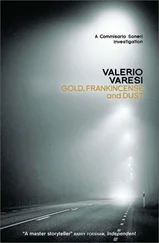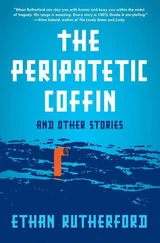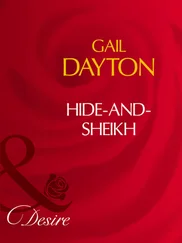Inder Lal is always eager to hear Chid's letters. He comes up to my room in the evenings so that I can read them out to him. He likes all that philosophy. He tells me that Chid's is a very old soul which has passed through many incarnations. Most of them have been in India and that is why Chid has come back in this birth. But what Inder Lal doesn't understand is why l have come. He doesn't think I was Indian in any previous birth, so why should I come in this one?
I try to find an explanation for him. I tell him that many of us are tired of the materialism of the West, and even if we have no particular attraction towards the spiritual message of the-East, we come here in the hope of finding a simpler and more natural way of life. This explanation hurts him. He feels it to be a mockery. He says why should people who have everything — motor cars, refrigerators — come here to such a place where there is nothing? He says he often feels ashamed before me because of· the way he is living. When I try to protest, he works himself up more, He says he is perfectly well aware that, by Western standards, his house as well as his food and his way of eating it would be considered primitive, inadequate — indeed, he himself would be considered so because of his unscientific mind and ignorance of the modem world. Yes he knows very well that he is lagging far behind in all these respects and on that account I am well entitled to laugh at him. Why shouldn't I laugh! he cries, not giving me a chance to say anything — he himself often feels like laughing when he looks around him and sees the conditions in which people are living and the superstitions in their minds. Who would not laugh, he says, pointing out of the window where one of the town's beggars happens to be passing, a teenage boy who cannot stand upright but drags the crippled underpart of his body behind him in the dust — who would not laugh, asks Inder Lal, to see a sight like that?
At such times I remember Karim and Kitty. I had gone to see them in London just before coming out to India. Karim is the Nawab's nephew and heir, and Kitty, his wife, is also of some Indian royal (or rather, ex-royal) house. When I phoned Karim and told him I was going to India to do some research into the history of Khatm, he asked me round to their flat in Knightsbridge. He himself opened the door:
"Hi there," he said. He was an extremely handsome young man, dressed in the height of London boutique fashion. I kept wondering whether he resembled the Nawab at all. Probably not, as Karim is very slender, almost slight, with delicate features and long curly hair; whereas the Nawab in his prime is said to have been a well set-up man with a strong, rather hawk-like face.
Karim ushered me into a room full of people. At first I thought it was a party but afterwards realised that they had just dropped in. They were Karim and Kitty's set. Most of them were sitting on the floor which was strewn with cushions, bolsters, and rugs. Everything was Indian, including most of the people there. They had a tape playing of sarod music — no one was listening but it made a good background to their talk which was carried on in high-pitched, rather bird-like voices. Kitty was curled up on a red and gold sofa which had once been a swing and was fixed to the ceiling by long golden chains. She too was dressed in smart London casual clothes — pants and a silk shirt — and wore them as gracefully as a sari: this may have been the effect of her very slender limbs, waist, and neck, combined with hips of a surprising voluptuousness. She too said "Hi there," and then she waved her hand vaguely around the room, murmuring "Take a pew."
I never did make out who they all were and whether they were all living in London or were just visiting. I had an impression that they commuted rather freely and sometimes I didn't know whether they were talking about something that had happened in Bombay or in London. They seemed to be engaged in a lot of selling and spoke knowingly about which family treasures could be safely carried out of India in one's hand baggage and which had to be got over by other means.
The only English people there besides myself were a couple called Keith and Doreen. They looked larger, stronger, coarser than the other people in the room and were listening eagerly — even, it seemed to me, greedily — to the conversation about family treasures. They told me that they were designers and were about to go into the manufacture of boutique clothes made exclusively of Indian materials. They were starting a partnership with Kitty and Karim: Karim would, be helping them with their contacts and Kitty was to come in on the creative side. She was, they said, very creative.
Karim had curled up on a cushion at my feet. He looked up at me with his beautiful eyes and said "You must tell us about your research." When I said that I was especially interested in his uncle, the previous Nawab, he said "Wasn't he a naughty boy?" Everyone laughed; they said that there had been a lot of naughty boys in those days. They began to tell stories. They all seemed to have relatives who had been involved in scandals in London hotels, had been deposed for some frightful misdemeanour, had squandered away family fortunes, had died of drink, drugs, or poison administered by illegitimate brothers. They spoke of these matters with nostalgia: "Say what you like," concluded one of them, "those days had their own charm."
From there they passed on to a discussion of present days which had no charm at all. India was of course home but was becoming so impossible to live in that they had to stay mostly abroad. Yet all of them were eager to serve India and would have done so if it had not been for the intransigent attitude of the present government. They had many bad experiences to relate on this score. One girl told how her family had tried to turn their palace into a hotel. It was in a beautiful picturesque area with many items of tourist interest all around, and some foreign investors had been very interested in the venture. But the Government of India wanted licences for everything and then refused to issue the licences. For instance, the palace was old, it had been built in the nineteenth century and, naturally, to make it convenient for modern tourists all sorts of modern sanitary fittings would have had to be imported. You could hardly, she said, expect a modern tourist to sit on a thunderbox! But try and explain that simple point to a Secretary of the Government of India who knows only one word which is no. In the end the foreign investors had got discouraged and had gone elsewhere. Now the palace was just lying there deserted with the roof caving in, so that the family had had no alternative but to get all their stuff out for auction abroad. There had been some priceless things — including a golden chariot in which the Lord Krishna was taken out in procession once a year — and they had fetched a good price: but of course, as everyone knew, there were so many middlemen to be paid off — the dealers and the auctioneers and the people who arranged for the thing to go out of India.
Karim told me that he had also had to get rid of most of the treasures in the palace at Khatm. If they had been left there, they would have been ruined by white ants and fungus. There had been a large collection of miniature paintings, but no one had cared about it; it had never been catalogued and was kept wrapped in sheets in underground chambers. Now fortunately most of it had been sold to foreign buyers, though. Karim had kept some pictures — not so much for their value as for family associations.
"Come, I will show you." He jumped up, gracefully unwinding his long legs, and led me into another room. This one seemed like a charming, rather exotic sitting room, full of rugs and painted furniture, but Karim said it was just the filthy little old den where he and Kitty liked to come and relax. It was here — framed in gold on the red wallpaper of Kitty and Karim's den — that I had my first sight of the palace at Khatm. It looked different from the way it does now, but this may have been due to the stylisation of the artist. Everything was jewelled: the flowers in the garden, the drops of water in the fountain.
Читать дальше












